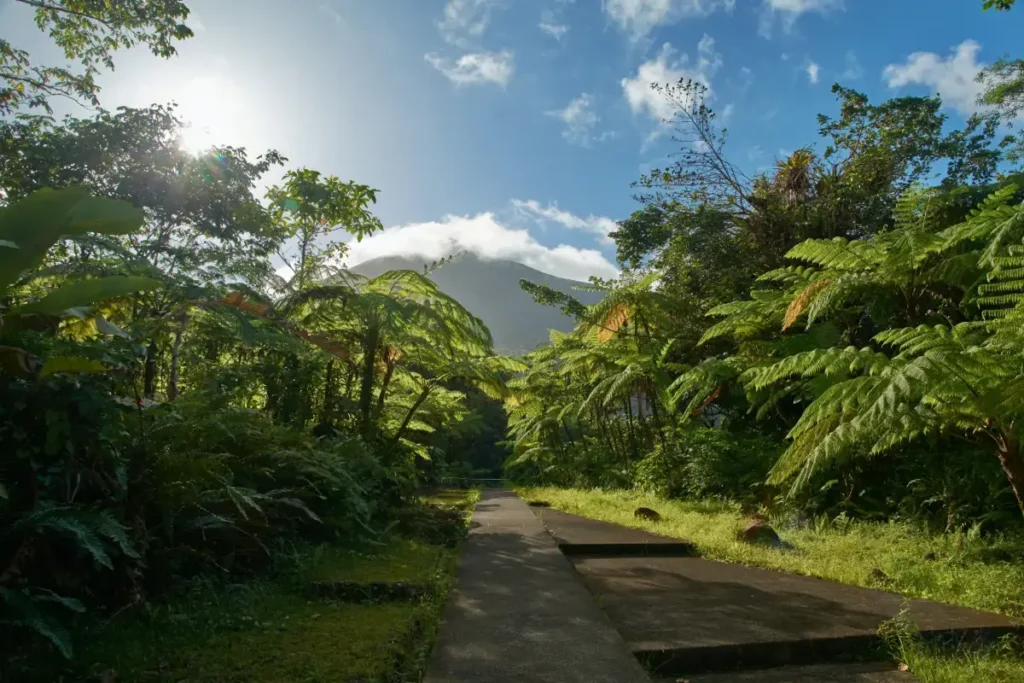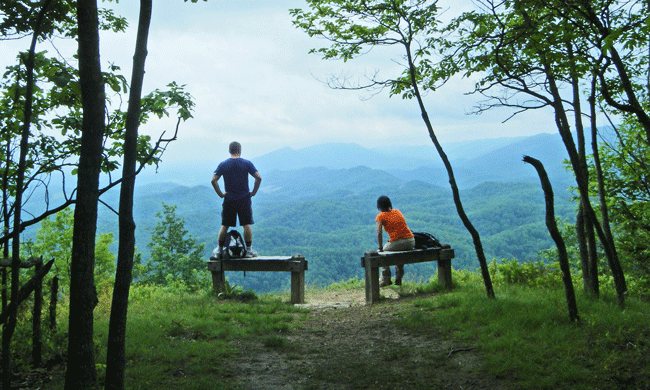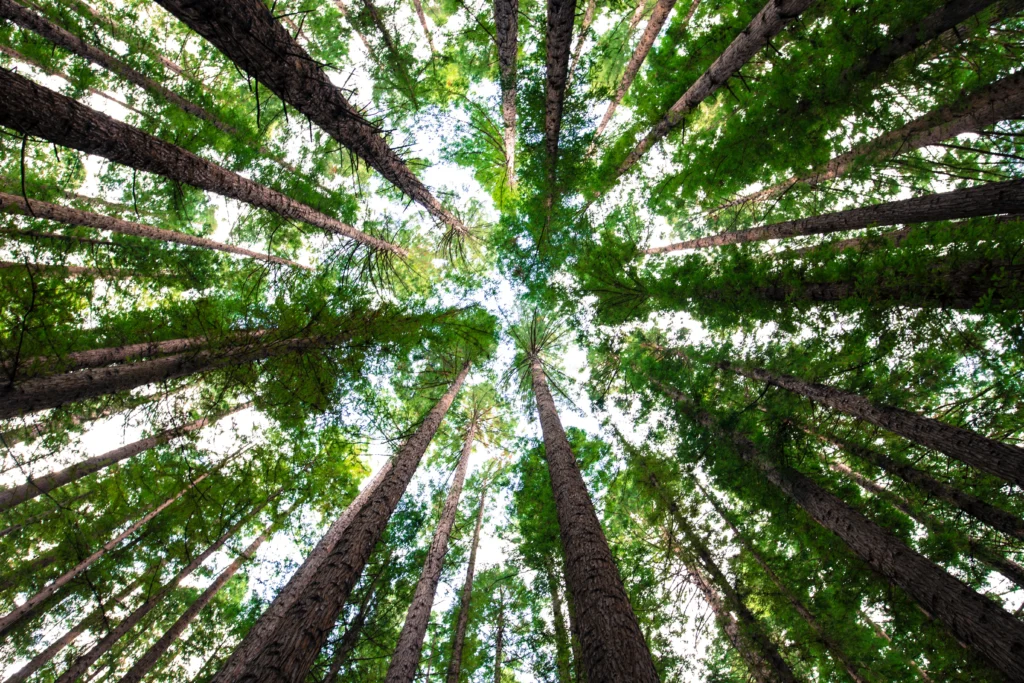Why Nature Makes Us Happy
Introduction:
In our fast-paced, hyper-connected world, stress, anxiety, and burnout are becoming almost universal experiences. But there’s a simple antidote that’s been around for as long as life itself nature. A walk in the woods, sitting by the ocean, or even tending to a houseplant can bring an overwhelming sense of calm and happiness. But why is this so?
The answer lies in the deep and intricate connection between humans and the natural world a relationship that influences us mentally, emotionally, spiritually, and even socially. In this article, we’ll explore the fascinating science and soulful stories behind why people feel truly happier when they connect with nature.

1. Evolutionary Roots: Nature Is Our Original Home
Long before we had smartphones, highways, or skyscrapers, humans evolved in the heart of the natural world. We lived in forests, roamed open savannas, and drank from rivers. Nature wasn’t something “out there” it was home.
🧬 The Biophilia Hypothesis
Biologist E.O. Wilson introduced the Biophilia Hypothesis, which suggests that humans are genetically predisposed to seek connections with nature and other forms of life. We’re drawn to trees, animals, water, and open landscapes not by chance, but because they signaled safety and survival for early humans.
🌳 Ancestral Memory
When we walk through a forest, something ancient awakens. The smell of pine, the rustle of leaves, the sound of birds all these elements tap into an ancestral memory. Nature feels “right” because we evolved in it. This familiarity brings comfort, reduces fear, and promotes a deep sense of belonging.
2. Nature’s Impact on the Brain: A Neuroscientific Perspective
Thanks to advancements in neuroscience, we now understand that nature doesn’t just feel good it rewires our brains in powerful and positive ways.
🧠 Cortisol Reduction
Numerous studies have shown that exposure to green spaces significantly lowers cortisol, the hormone associated with stress. When we’re surrounded by greenery, our body exits “fight-or-flight” mode and shifts into rest and digest, calming both the mind and body.
💡 Boost in Dopamine and Serotonin
Nature increases the brain’s production of dopamine and serotonin two neurotransmitters that regulate mood, motivation, and pleasure. This is why walking in a park can feel as uplifting as a favorite song or a comforting meal.
🔄 Restoring the Prefrontal Cortex
Our prefrontal cortex responsible for decision-making and complex thought is constantly bombarded by digital inputs. Nature gives this part of the brain a break, allowing for mental restoration, improved focus, and even better memory.

3. Mental Health Benefits: Nature as Therapy
The mental health benefits of spending time in nature are so significant that some psychologists now prescribe it literally.
🌿 Green Therapy and Ecotherapy
Ecotherapy (also called green therapy or nature therapy) uses nature as a tool for treating psychological issues. It’s particularly effective for people suffering from depression, anxiety, and PTSD. Even a weekly walk in a garden can lead to meaningful improvements.
💚 Nature Reduces Rumination
Rumination the habit of overthinking or dwelling on negative thoughts is significantly reduced after time spent in nature. Studies show that a 90-minute walk in a natural setting decreases activity in the subgenual prefrontal cortex, a brain region linked to depressive thought patterns.
😌 An Emotional Reset Button
Being in nature acts as an emotional reset, especially for people feeling overwhelmed or emotionally drained. The quiet, rhythm, and simplicity of natural environments help regulate emotions and promote emotional resilience.
4. Emotional and Spiritual Connection
Beyond brain chemicals, nature speaks to the soul in a way few other things can.
🌠 Awe and Wonder
Nature often evokes a sense of awe whether it’s standing at the edge of the Grand Canyon or watching fireflies on a summer night. Awe is powerful. It humbles us, makes our problems seem smaller, and enhances life satisfaction.
🔮 Spiritual Reflection
Many spiritual traditions across cultures emphasize solitude in nature as a path to enlightenment. Buddhists meditate under trees. Sufi poets wrote about gardens. Indigenous tribes consider rivers, rocks, and animals as sacred spirits. This spiritual grounding gives people a sense of purpose and inner peace.
🪞 Nature as a Mirror
Alone in nature, people often confront their true selves. With no distractions, nature becomes a mirror reflecting our fears, desires, and truths. This clarity is often followed by deep emotional healing and gratitude.
5. Social Bonding in Natural Settings
We don’t just bond better with ourselves in nature we also bond better with others.
👣 Better Conversations
Ever notice how conversations flow more easily on a nature walk than in a boardroom? Side-by-side walking in open spaces lowers social defenses and makes people more open and honest.
🏕️ Shared Experiences Build Trust
Group experiences in nature whether it’s hiking, kayaking, or camping promote teamwork, trust, and shared memory-making. There’s something about surviving a thunderstorm in a tent or watching a sunrise together that strengthens relationships.
🧑🤝🧑 Nature as a Social Equalizer
In nature, social roles blur. CEOs and interns become just hikers. Without office titles or social media filters, people are more likely to connect authentically.

6. Physical Health and Its Link to Emotional Well-being
It’s no secret that a healthy body often leads to a healthier mind. And nature encourages natural movement, which improves both.
🚶♀️ Incidental Exercise
Nature invites us to move without trying walking a trail, climbing rocks, swimming in rivers. This movement:
- Boosts endorphins (feel-good hormones)
- Improves cardiovascular health
- Helps regulate sleep
🧬 Boosts Brain Health
Physical activity in green spaces increases neuroplasticity the brain’s ability to adapt and grow. This leads to better mood regulation, sharper thinking, and improved problem-solving.
❤️ Prevention of Chronic Illness
Nature lovers often have lower risks of:
- Obesity
- Heart disease
- Diabetes
- High blood pressure
When your body feels good, your mind follows.
7. Children and Nature: A Vital Relationship
For children, nature isn’t just beneficial it’s essential for healthy development.
🛝 Improved Creativity and Problem Solving
Outdoor play boosts imagination and problem-solving skills. A stick becomes a sword; a rock, a spaceship. Nature encourages unstructured play, which is vital for brain development.
📉 Reduced Behavioral Issues
Time in nature reduces ADHD symptoms and improves attention spans. Schools with outdoor programs often report better academic performance and fewer behavioral problems.
😊 Emotional Stability and Empathy
Children who grow up around nature tend to be more emotionally balanced, empathetic, and cooperative. They’re also more likely to grow into adults who care for the environment.
8. Nature and Creativity
If you’ve ever had your best ideas in the shower or while staring at the sky, you’ve experienced how nature boosts creative thinking.
🎨 Engaging the Default Mode Network
When we’re at rest in nature, the brain activates the Default Mode Network (DMN), associated with creativity, daydreaming, and reflective thought. This is why ideas often strike during a quiet forest walk.
🔁 Inspiration from Natural Patterns
Nature is full of fractals, spirals, and symmetries shapes known to stimulate the brain and evoke curiosity. These patterns inspire everything from poetry to architecture.
📝 Writers, Artists, and Thinkers
Famous creatives like Thoreau, Wordsworth, and Georgia O’Keeffe used nature as their muse. Today, many professionals use “nature retreats” to unlock creative blocks.

9. Urban Nature: The Happiness in Green Cities
You don’t need to escape to the wilderness to feel the joy of nature. Even in cities, urban nature plays a critical role in mental health.
🌳 Benefits of Green Infrastructure
City parks, green rooftops, tree-lined streets, and public gardens:
- Improve air quality
- Encourage physical activity
- Increase neighborhood satisfaction
🪟 Even Views Matter
Research shows that hospital patients recover faster when they have a view of trees from their window. Office workers are less stressed and more productive with even a glimpse of green.
🏙️ Nature as an Urban Necessity
In densely populated areas, green spaces become mental health lifelines offering refuge from concrete, noise, and crowding.
10. Forest Bathing and Eco-Therapies: Modern-Day Solutions
As the modern world grows more stressful, more people are turning to nature-based therapies as legitimate forms of healing.
🌲 Shinrin-Yoku (Forest Bathing)
Developed in Japan, this practice involves walking slowly and mindfully through a forest. The goal isn’t exercise, but presence.
- Lowers cortisol
- Reduces blood pressure
- Enhances immune function
🌸 Horticultural Therapy
Gardening is used as a therapeutic tool for:
- Elderly patients with dementia
- Veterans with PTSD
- Children with developmental disorders
🐕 Animal-Assisted Nature Therapy
Programs combining nature and animals (like equine therapy or dog-walking in parks) offer emotional healing, reduce loneliness, and improve social engagement.
Conclusion:
We are not separate from nature we are a part of it. Our brains, bodies, and spirits were shaped by trees, rivers, animals, and wind. The further we stray from nature, the more we suffer. But the opposite is equally true: when we meet nature, we rediscover joy.
So whether it’s a mountain hike, gardening on your balcony, or just watching clouds drift by make time for nature. Because in those green, quiet moments, you’ll find more than beauty you’ll find yourself.